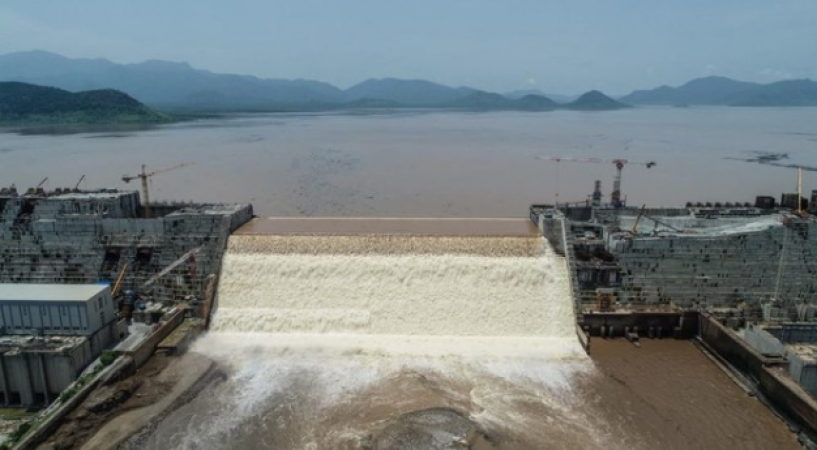
Cairo: Egypt has criticised Ethiopia for its claim that Cairo is politicising the dispute over the Nile's waters, claiming that this is an effort to avoid taking legal responsibility for the Grand Ethiopian Renaissance Dam's effects.
Ethiopia started gradually filling the dam in 2020 after it had been under construction since 2011, which raised tensions with Egypt and Sudan, who are downstream and worry that it will reduce their share of the Nile's water. They demand that Ethiopia enter into a binding agreement regarding its operation and filling.
Egypt's deputy foreign minister for African Affairs, Hamdi Loza, stated on Wednesday that Cairo's worries about the project's effects on Egypt's water security are valid and supported by concrete scientific research.
Also Read: Naftogaz claims it has won a $5 billion lawsuit against Russia
The Ethiopian minister of state for foreign affairs recently repeated Ethiopian claims that Egypt is politicising the situation, which he dismissed as an effort to avoid legal responsibility and disregard for the norms of international law and good neighbourliness.
"It is unfortunate that Ethiopian officials continue to express their willingness and desire to resume negotiations under the auspices of the African Union, in a new attempt to buy time and continue filling the dam without an agreement," said Loza in a statement from the Foreign Ministry.
The ten years of ongoing negotiations without a resolution is proof of Ethiopia's resistance.
Also Read: Last-ditch protests against Macron's pension reform in France
According to Loza, recent statements by Ethiopian officials about their absolute freedom to keep filling the dam regardless of the rights of countries downstream are additional proof that their approach to the problem is unilateral and beyond the scope of negotiation.
According to Meles Alem, a spokesman for the Ethiopian Foreign Ministry, the dam's construction and operation won't harm Sudan or Egypt, and Ethiopia is still trying to find an African solution to the project's critics.
According to Ethiopian media reports, Misganu Arga, the minister of state for foreign affairs of Ethiopia, Addis Ababa's position is consistent with the necessity of continuing trilateral negotiations under the direction of the African Union.
"No party benefits from Egypt's attempt to politicise the Nile's waters and the dam," Arga said during a meeting with African Union Commission Chairman Moussa Fakih. The African Union, he hoped, "will play a positive role in continuing the negotiations based on the reality on the ground."
Egypt depends on the Nile for more than 90% of its fresh water needs, so any reduction brought on by the dam would be catastrophic for the country's economy. Sudan is anxious about the dam's security and how it will affect the water flowing through its own dams and power plants. According to Ethiopia, the project is essential for both power generation and economic growth.
As a result, the long-running, contentious disagreement regarding the building, filling, and operation of the dam is still open.
Last month, Egypt's foreign minister Sameh Shoukry reaffirmed Egypt's worries regarding Ethiopia's actions in relation to the dam's operation. He claimed that it could be extremely dangerous for his nation, which "suffers from unique water scarcity as the driest country in the world."
Also Read:Jordan's Queen Rania meets the wife of Japan's Prime Minister
He continued, "I do not fail to address a pivotal issue of advanced priority, which has fateful consequences for Egypt's national security, namely the danger of unilateral Ethiopian practises on the common river basins, of which the GERD is the most prominent current manifestation."
Shoukry once more denounced Ethiopia for continuing to fill the dam without first coming to a legally-binding agreement with its two downstream neighbours.